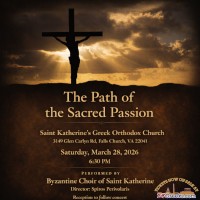|
|
|||||||||||||||
|
Why We Hate Greek Cinema July 5, 2005 We’re no film critics. We’re certainly not experts in modern Greek cinema. If it weren’t for the subtitles, we’d definitely miss details and nuance that makes you miss the point of a movie. But it doesn’t take subtitles to understand that modern Greek cinema, at least the kind that we’ve been subjected to here stateside in the last four years from random showings at artsy theaters in DC to the most recent 1st Annual Contemporary Greek Film Festival in Baltimore over the past three weeks is, well… depressing, disappointing, and sometimes down-right pointless. Yes we understand for the most part that these aren’t your average Hollywood “popcorn” flicks that we’re watching. And yes, you have to take into account that the influences of these contemporary Greek filmmakers are more often than not Greece’s tumultuous history since World War II. But as we approach 60 years since the end of the World War II and 30 years since the coup, isn’t it time that modern Greek filmmakers catch up with the rest of Greece and put an optimistic forward thinking spin on things? Admittedly we only were able to catch two of the eight films of this latest film festival. But from talking to those in the audience who were able to make it to some of the earlier films we thankfully saw two of the offerings that were least likely to make you want to kill yourself. One young woman described a silence walking out of the theatre that rivaled a screening of last year’s “The Passion of the Christ.” Maybe it’s the way that some of these titles translate in English, but who would want to go subject themselves to multiple helpings of films with titles like, “Hazardous & Unhealthy,” or “Dust?” I hear “Hazardous & Unhealthy” and I think of all the second-hand smoke I inhaled at the last Greek Night. And I’ve got “Dust” at home I could be watching, thank you very much. One of the films was translated in English as “Atlas” but the real Greek title literally translated to “All the Weight of the World.” Most of us feel that we’re dealing with the weight of the world at our jobs or in our personal lives so when the time comes to relax we don’t want to go see it on screen. (Last year showing in downtown DC, of “Hard Goodbyes: My Father,” which you knew from the title going in was not going to have a happy ending, was at least was a cute little story, if still not a little sad in the end.) Descriptions of films can always be deceiving as to what they are ultimately going to be about. Unfortunately you never have the benefit of a trailer or a movie review when it comes to bringing these Greek films stateside. The best thing about the 1st Annual Contemporary Greek Film Festival in Baltimore was that it did offer eight different movies, so you didn’t feel obligated into seeing a film that looked bad on paper just because it was the only one in town. From looking over the synopses we were optimistic that the last weekend of films, “Delivery,” “Kalabush,” and “Playing Part,” would be the best of the lot.
Ok, we knew this wasn’t going to be cheerful, but you figured it would be interesting, quite possibly Quentin Tarantino-like. We heard that the key word in the description truly was “silently” as the main character didn’t say anything for half the movie. (Just like the people who probably sat there dumbfounded in the audience at that fact.)
We read on the film festival’s website and made sure to repeat it on our events calendar listing for this movie that it won some award for best comedy. So we figured it was the only comedy of the bunch and that this would be a good thing. The description seems Quixotic enough, and the bit about the ostrich, well that’s funny, so it’s sounding like maybe a lighter version of a show like ABC’s “Lost” which in some respects is also about belonging and running away and has these unexplained phenomena. But then you find out that although there is an ostrich in it, and as we’ve said, ostriches are funny, it’s a boy ostrich and boy ostriches obviously don’t lay eggs. You’re coming into this movie and asking yourself, “What’s up with the ostrich?” -- “Why can’t it lay eggs? -- Is it nervous? -- Does it have some kind of a complex?” An ostrich with a complex would be kind of funny.” But it’s not an ostrich with a complex, it’s just a big stupid boy bird. One serious note about this movie is that it does reflect Greek attitudes towards globalization, with an EU representative who doesn’t speak throughout the movie, and a host of immigrants speaking broken English, broken Greek and everything else under the sun. (This required English subtitles for the Greek characters, the Middle Eastern characters, and the Eastern European characters making you not even realize when anyone was actually speaking Greek in this film.)
Now this one sounded like it was going to be a Byzantine version of 2001’s Moulin Rouge, except without all the singing. This movie started well enough and pretty much stuck to its description, but like many of these movies we’ve seen, we just left scratching our heads. Despite our indictment of modern Greek cinema, we look forward to the next time a Greek film comes to town. It’s encouraging to see more people and organizations, Greeks and Philhellenes alike, bringing awareness to these films. As long as these movies keep coming to DC, we’ll keep watching them, reviewing them, and hopefully soon, walking out of them feeling better than when we walked in.
|



